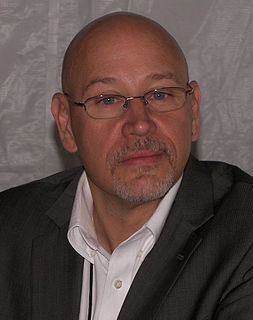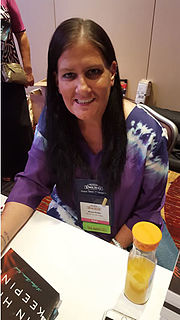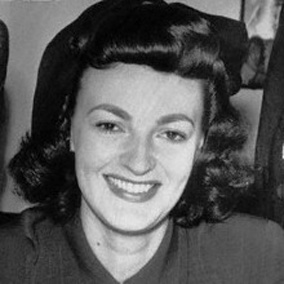A Quote by Karen Marie Moning
She understood now why her friend Elizabeth, with her near-genius, analytical mind gave wide berth to murder mysteries, psychological thrillers, and horror stories, and read only romance novels. Because, by God, when a woman picked up one of those steamy books, she had a firm guarantee that there would be a Happily-Ever-After. That though the world outside those covers could bring such sorrow and disappointment and loneliness, between those covers, the world was a splendid place to be.
Quote Topics
After
Analytical
Because
Between
Books
Bring
Could
Covers
Disappointment
Elizabeth
Ever
Firm
Friend
Gave
Genius
God
Guarantee
Had
Happily
Her
Horror
Horror Stories
Loneliness
Mind
Murder
Murder Mysteries
Mysteries
Near
Novels
Now
Only
Outside
Picked
Place
Psychological
Psychological Thrillers
Read
Romance
Romance Novel
She
Sorrow
Splendid
Stories
Those
Though
Thrillers
Understood
Up
Why
Why Her
Wide
Woman
World
Would
Would Be
Related Quotes
She had learned, in her life, that time lived inside you. You are time, you breathe time. When she'd been young, she'd had an insatiable hunger for more of it, though she hadn't understood why. Now she held inside her a cacophony of times and lately it drowned out the world. The apple tree was still nice to lie near. They peony, for its scent, also fine. When she walked through the woods (infrequently now) she picked her way along the path, making way for the boy inside to run along before her. It could be hard to choose the time outside over the time within.
She remembered the heroines of novels she had read, and the lyrical legion of those adulterous women began to sing in her memory with sisterly voices that enchanted her. Now she saw herself as one of those amoureuses whom she had so envied: she was becoming, in reality, one of that gallery of fictional figures; the long dream of her youth was coming true.
She wanted happily ever after more than he could possibly know. She wanted forever. Problem was, she just wasn’t sure she believed in it anymore. It was why she clung to her fiction so much. She immersed herself in books because there she could be anyone and it was easy to believe in love and happily ever after
They had stopped now and he gave a glance up at the sky, through the trees, as though to see how much time was left. Amber, watching him, was suddenly struck with panic. Now he was going--out again into that great world with its bustle and noise and excitement--and she must stay here. She had a terrible new feeling of loneliness, as if she stood in some solitary corner at a party where she was the only stranger. Those places he had seen, she would never see; those fine things he had done, she would never do. But worst of all she would never see him again.
My mother lived her life through movies and books - she read everything there was to read. And she read to me every night. I never went to sleep without her reading to me. And she fantasized about the book and she would talk about it, the place, and you would think that after she read the book and after she told you stories about it, that she had actually been there. I learned about story from her, and I learned the value of a great story, and the value of great characters.
As he was about to leave, she said, "Murtagh." He paused and turned to regard her. She hesitated for a moment, then mustered her courage and said, "Why?" She though he understood her meaning: Why her? Why save her, and now why try to rescue her? She had guessed at the answer, but she wanted to hear him say it. He stared at her for the longest while, and then, in a low, hard voice, he said, "You know why.
In Tereza’s eyes, books were the emblems of a secret brotherhood. For she had but a single weapon against the world of crudity surrounding her: the novels. She had read any number of them, from Fielding to Thomas Mann. They not only offered the possibility of an imaginary escape from a life she found unsatisfying; they also had a meaning for her as physical objects: she loved to walk down the street with a book under her arm. It had the same significance for her as an elegant cane from the dandy a century ago. It differentiated her from others.
Elizabeth Turnage is a woman of grit and grace who lives into the stories of those who join her in this odd journey of seeking God. She honors the complexity of life without ever losing sight of the simple glory of the cross. Her grasp of the mundane and miraculous and their interplay gives a depth and honesty to her story that tugs at the heart and gives us hope our story can matter. Her book will be a clarion call to bring our broken, holy, troubled, and glorious life to the author of all stories: Jesus.
In her heart she is a mourner for those who have not survived. In her soul she is a warrior for those who are now as she was then. In her life she is both celebrant and proof of women's capacity and will to survive, to become, to act, to change self and society. And each year she is stronger and there are more of her.
In the classics section, she had picked up a copy of The Magic Mountain and recalled the summer between her junior and senior years of high school, when she read it, how she lay in bed hours after she should have gotten up, the sheet growing warmer against her skin as the sun rose higher in the sky, her mother poking her head in now and then to see if she'd gotten up yet, but never suggesting that she should: Eleanor didn't have many rules about child rearing, but one of them was this: Never interrupt reading.
Mirabelle replaces the absent friends with books and television mysteries of the PBS kind. The books are mostly nineteenth-century novels in which women are poisoned or are doing the poisoning. She does not read these books as a romantic lonely hearts turning pages in the isolation of her room, not at all. She is instead an educated spirit with a sense of irony. She loves the gloom of these period novels, especially as kitsch, but beneath it all she finds that a part of her indentifies with all that darkness.
Now, my mom did not read well and she read 'True Romance' magazines, but she read with me. And she would spend 30 minutes a day, her finger going along the page, and I learned to read. Eventually, by the time I was four and a half, she could iron and I could sit there and read the 'True Romance.' And that was wonderful.
Let us sit and mock the good housewife Fortune from her wheel, that her gifts may henceforth be bestowed equally, I would we could do so for her benefits are mightily misplaced and the bountiful blind girl doth most mistake in her gifts to women. 'Tis true for those that she makes fair she scarce makes honest and those that she makes honest she makes very ill-favouredly. Nay, now thou goest from Fortunes office to Natures. Fortune reigns in gifts of the world, not in the lineaments of Nature.
After a while it occurred to me that between the covers of each of those books lay a boundless universe waiting to be discovered while beyond those walls, in the outside world, people allowed life to pass by in afternoons of football and radio soaps, content to do little more than gaze at their navels.


































